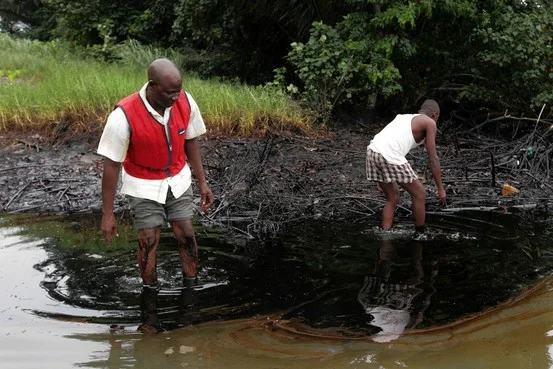In February 2021, the UK Supreme Court ruled that 42,500 farmers and fishermen from Nigeria’s Ogale and Bille communities could sue Royal Dutch Shell in English courts for environmental damage caused by oil spills in the Niger Delta.
The court determined there was an arguable case that Shell, one of the world’s largest energy companies, exercised significant control over its Nigerian subsidiary, Shell Petroleum Development Company (SPDC), establishing a “duty of care” to the claimants.
This landmark decision overturned earlier rulings by the High Court (2017) and Court of Appeal, which had dismissed the case on jurisdictional grounds, citing Shell’s lack of responsibility for SPDC’s actions.
Expanded Legal Claims
On January 26, 2023, UK law firm Leigh Day announced it had filed claims on behalf of 11,317 individuals and 17 institutions, including churches and schools, from the Ogale community, seeking compensation for loss of livelihoods and environmental damage caused by Shell’s operations.
This adds to a prior claim filed in 2015 by the Bille community, bringing the total number of claimants to 13,652.
Leigh Day stated that a case management hearing is scheduled for Spring 2023, with a full trial expected in 2024.
Nature of the Claims
The claims assert that oil spills from Shell’s operations have devastated the Niger Delta, a region rich in oil but plagued by poverty, pollution, and violence.
The spills have contaminated farmland, drinking water, and aquatic ecosystems, severely impacting farming and fishing livelihoods.
The Niger Delta’s complex network of creeks and mangrove swamps, crisscrossed by pipelines, has suffered from frequent spills due to corrosion, vandalism, and operational failures.
Shell’s Defense
Shell attributes most spills to “illegal third-party interference,” such as pipeline sabotage, crude oil theft, and illegal refining, which it claims cause the bulk of environmental damage.
A Shell spokesperson stated that SPDC remains committed to cleaning and remediating affected areas, regardless of the spill’s cause, but argued that “litigation does little to address the real problem” of criminal activities in the Niger Delta.
Shell has faced similar accusations in other cases, including a 2021 Dutch court ruling ordering compensation for farmers affected by spills in two Nigerian villages.
Broader Context
The legal battle reflects broader issues in the Niger Delta, where oil extraction has fueled corruption, conflict, and environmental degradation for decades.
The region’s communities, heavily reliant on agriculture and fishing, face ongoing challenges from spills, with a 2011 UN Environmental Program report noting severe groundwater contamination in Ogale, including benzene levels 900 times above WHO guidelines.
The case also highlights the growing trend of holding multinational corporations accountable in their home jurisdictions for overseas subsidiaries’ actions, following precedents like the UK Supreme Court’s 2019 Vedanta ruling.
Next Steps
The upcoming case management hearing in Spring 2023 will set the stage for a full trial, potentially in 2024, which could establish a significant precedent for corporate accountability in environmental and human rights cases.
The outcome may influence future claims against oil companies operating in vulnerable regions and shape Nigeria’s pursuit of justice for its affected communities.






